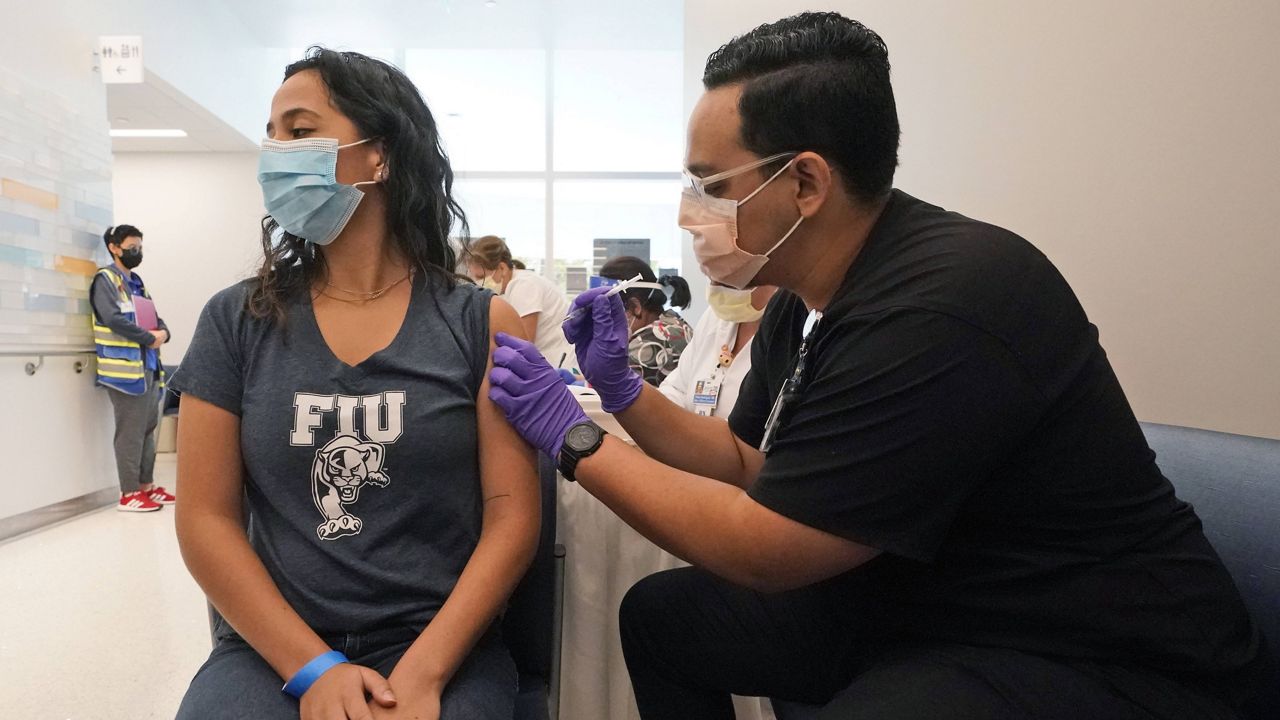In addition to the plummeting numbers of COVID-19 infections, hospitalizations and deaths in the United States, studies continue to mount proving that vaccines are doing their job.
What You Need To Know
- In addition to the plummeting numbers of COVID-19 infections, hospitalizations and deaths in the United States, studies continue to mount proving that vaccines are doing their job
- A study out of England found that two doses of the Pfizer vaccine are highly effective against the Alpha and Delta variants, but the level of protection drops significantly with just one dose
- A CDC study found that people 65 and older were seeing greater improvements across the board than adults 18 to 49 since vaccinations began in December
- The researchers' conclusion: Older populations are likely faring better because they have higher vaccination rates
At Tuesday’s White House COVID-19 response team briefing, health officials cited new research showing the effectiveness of the vaccines, but also the risks for those who remain unvaccinated or partially vaccinated as coronavirus variants circulate, particularly for younger populations.
Dr. Anthony Fauci, director of the National Institute of Allergy and Infectious Diseases and President Joe Biden’s chief medical adviser, pointed to a study out of England published last month showing that two weeks after the second dose was administered, the Pfizer-BioNTech vaccine was 93% effective in preventing symptomatic illness from the initial strain of the coronavirus that spread around the world last year — also known as the Alpha variant — and 88% against the Delta variant that was first detected in India.
The study also found that three weeks after the first shot was given, the level of protection dropped to about 50% against the Alpha variant and 33% against Delta.
The Delta variant is more easily transmissible and may be linked to increased hospitalization risk, Fauci said. It has been reported in 60 countries and accounts for more than 6% of the COVID-19 cases that have been sequenced in the U.S.
The variant is now the dominant strain in the United Kingdom.
“We cannot let that happen in the United States, which is such a powerful argument ... to get vaccinated,” Fauci said. “Particularly if you had your first dose, make sure you get that second dose. And for those who have been not vaccinated yet, please get vaccinated.”
Fauci said health authorities in the U.K. have reported that transmission of the Delta variant is peaking in 12- to 20-year-olds.
The Centers for Disease Control and Prevention published its own study Tuesday comparing the impact vaccinations have had on older Americans versus younger adults in terms of COVID-19 infections, emergency room visits, hospitalizations and deaths.
Comparing data from a two-week period just before vaccinations were authorized in December and the two-week period from April 18-May 1, the researchers found that people 65 and older were seeing greater improvements across the board than adults 18 to 49.
Their conclusion: Older populations are likely faring better because they have higher vaccination rates.
As of May 1, 82% of Americans 65 and older had received at least one vaccine dose, but only 42% of adults 18-49 had.
“We were able to see the critical contribution of vaccination coverage on reducing COVID-19 cases, severe illness and death, especially among those over age 65,” CDC Director Dr. Rochelle Walensky said Tuesday.
“Still, we have a lot more work to do, especially in younger age groups,” she added.
The United States surpassed 300 million coronavirus doses administered Tuesday. Nearly 52% of the population (171.3 million) has received at least one dose, while 42% (139.7 million) are fully vaccinated.
The seven-day average for new infections as of Sunday was 13,277 — the lowest it has been since March 26, 2020.



